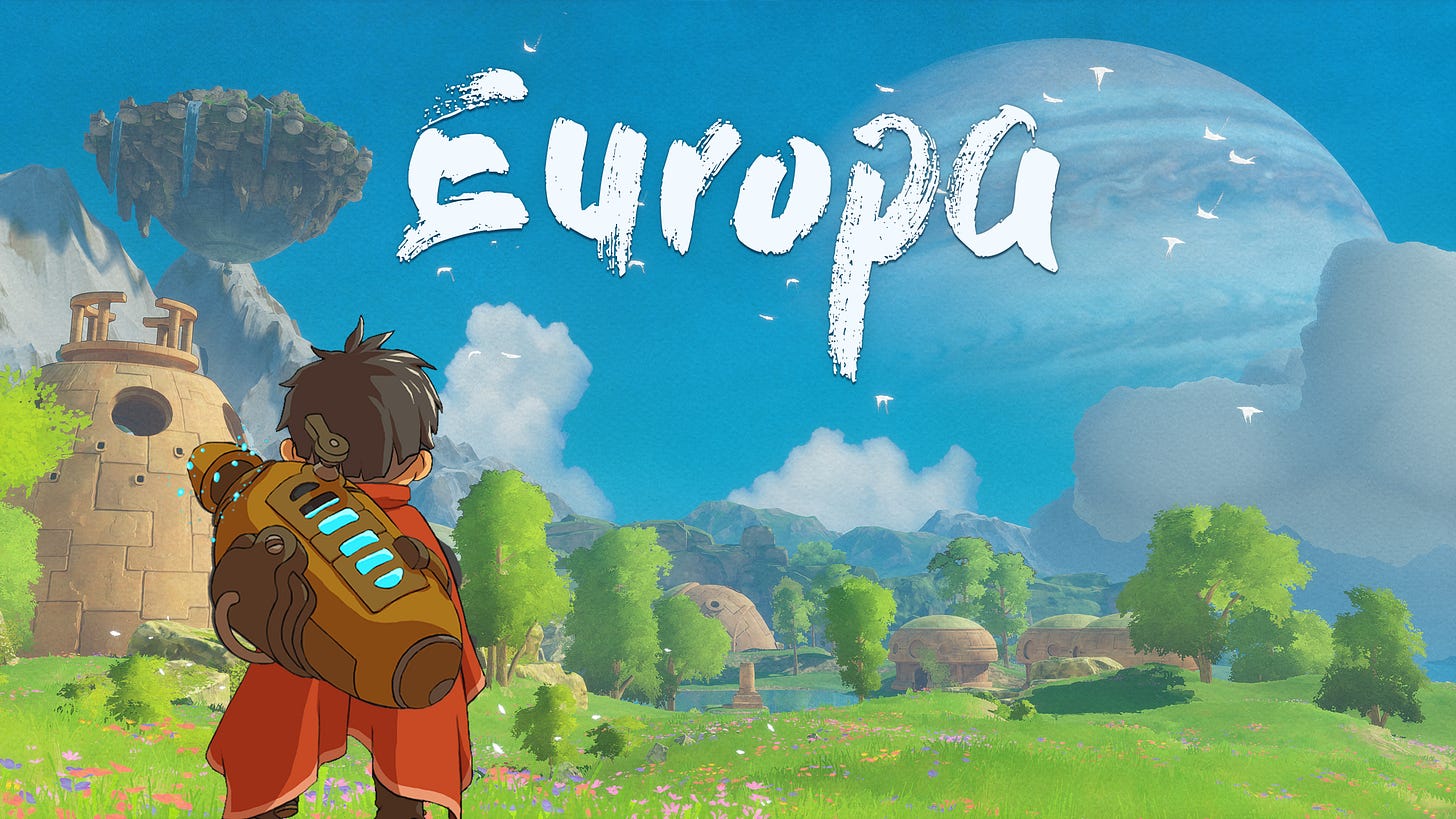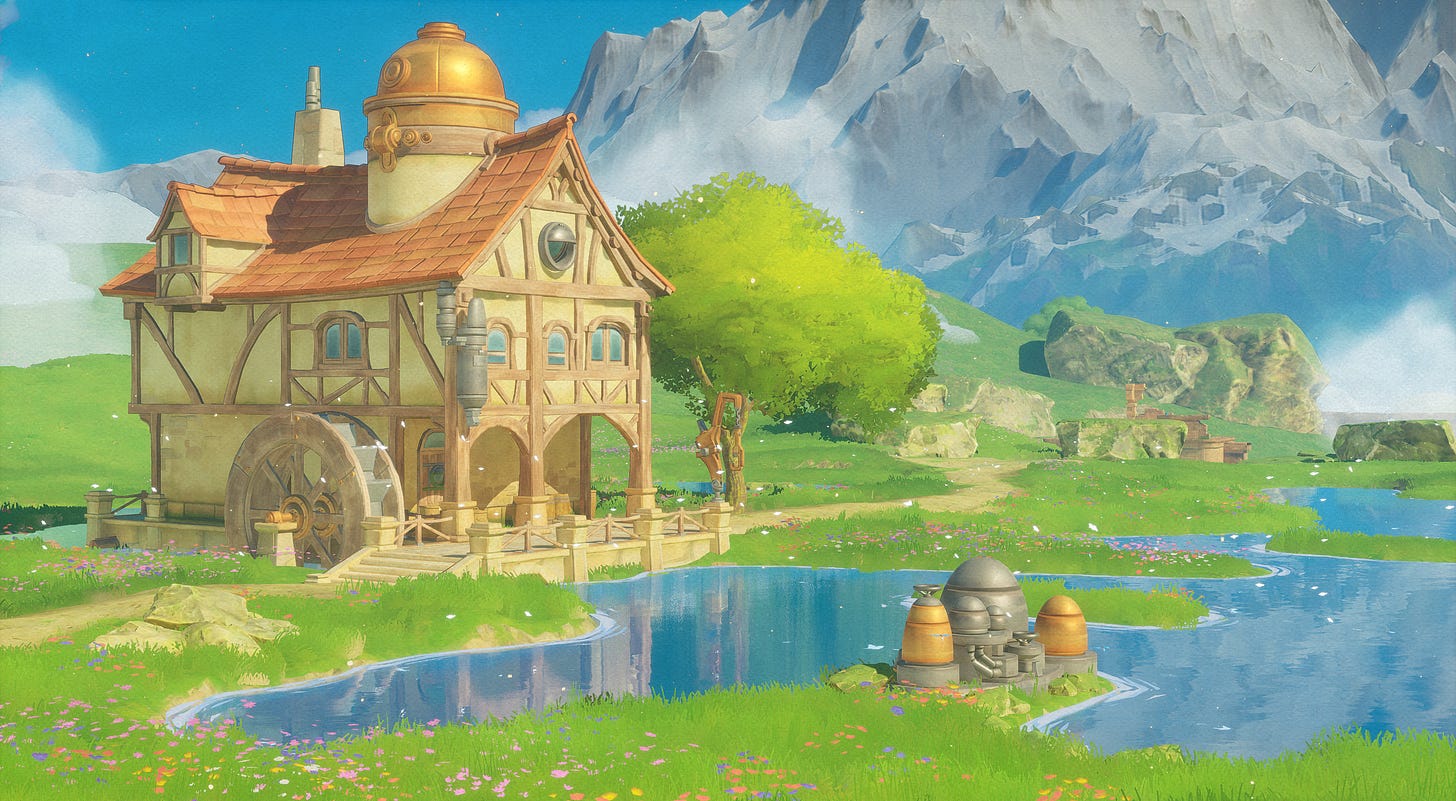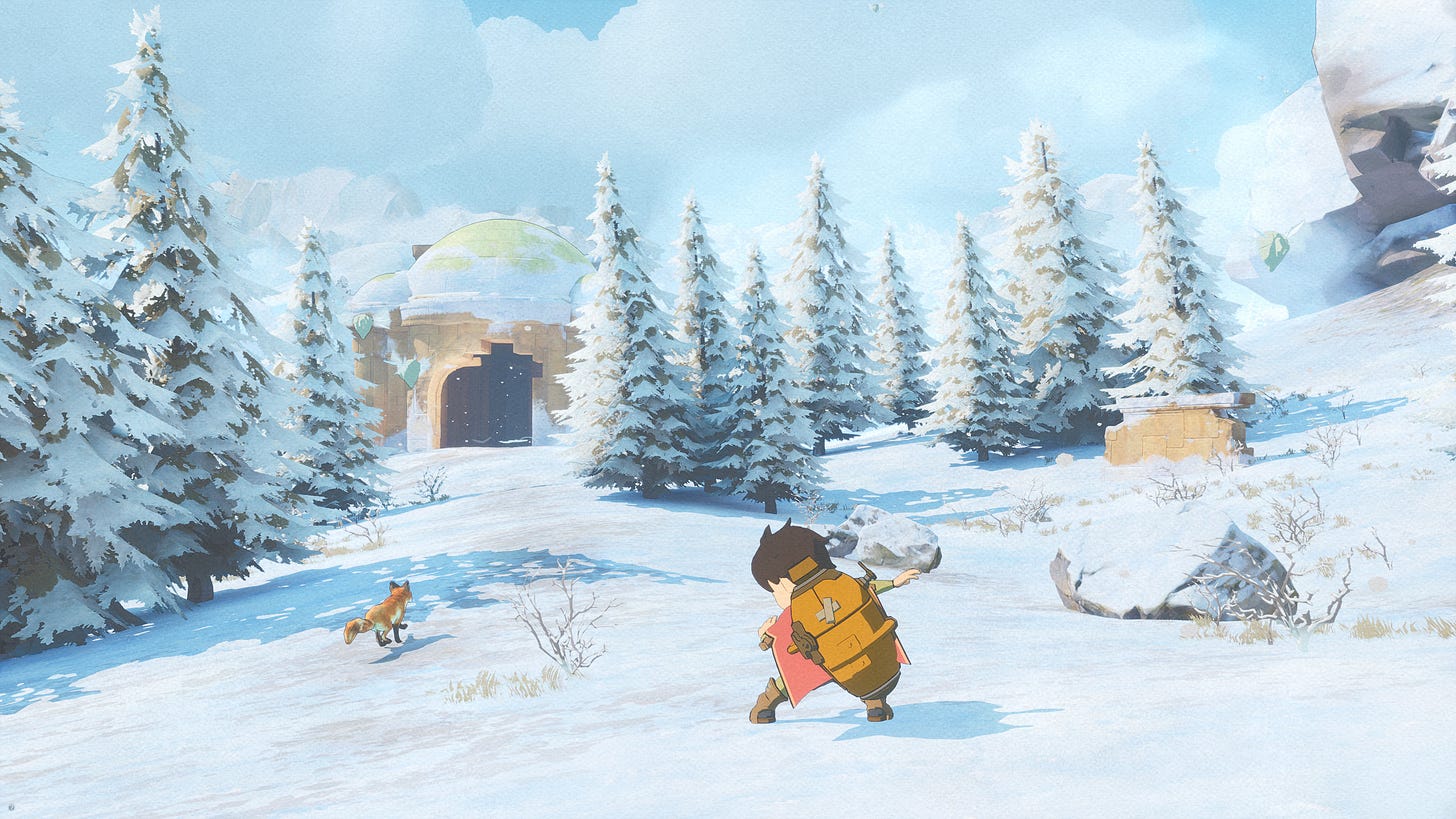An Overwatch Environment Artist Builds His Dream Game
push to talk #7 // feat. a Portuguese dev with 20 years of worldbuilding experience
This week’s issue features Helder Pinto, a designer and environment artist who’s spent nearly 20 years building awe-inspiring game worlds for franchises like Crysis and Overwatch.
Find that story below. But first, this week's spiciest games industry news.
Scuttlebutt and Slackery
The week’s most-shared, oft-Slacked, and spiciest games industry news links.
Both Xbox and PlayStation (Sorta?) Embrace Multiplatform - After a week of rumors and widespread fretting about Xbox’s future, Phil Spencer and team finally put out an announcement that was somewhat light on specifics. TL;DR some current Xbox exclusives will go to PlayStation and other devices, but most will stay exclusive to Xbox. Meanwhile, in the wake of the remarkable success of PlayStation-published Helldivers 2 on Steam, Sony’s Hiroki Totoki says you can expect to see even more PS games on PC in the future.
Supercell Looks to the Future - I always look forward to the annual “State of the Union” style blog post from Supercell head Ilkka Paananen, and this year’s post is particularly interesting. The studio has been famous for sticking with extremely small team sizes while still managing to bring in billions in revenue, but Paananen explains here that he’s beginning to rethink the policy. At a time when almost every other studio is shrinking, Supercell is getting ready to go bigger. (Supercell)
Layoffs at ZA/UM Lead to PR Chaos - Disco Elysium makers ZA/UM have had a rough few years, but things have escalated dramatically with a recent reveal of incoming layoffs and the cancelation of a rumored expansion pack for DE, code-named X7. One of the affected employees, Argo Tuulik, was also the last remaining writer from the original DE team. He has since given a remarkably bitter interview about the situation to GLHF. (GLHF)
French Union STJV Calls Foul on Life is Strange Devs - DON’T NOD, the studio behind critically acclaimed games like Life is Strange and Jusant, is facing accusations of mismanagement and a culture of burnout, published in an unusual letter by the French games industry union STJV. It seems safe to say there’s been some sort of breakdown in communication between the union reps and studio leads, who have pushed back against the accusations in a statement. (STJV)
An Overwatch Environment Artist Builds His Dream Game
Last week I almost ran out of hard drive space on my PC thanks to Steam Next Fest—Valve’s annual event that features hundreds of free demos for upcoming games.
There were a few standouts that lots of people gravitated toward like INDIKA (play as a nun in 19th century Russia), Pacific Drive (a “driving survival adventure”), and MULLET MADJACK (like Doom as an 80s anime).
But one game stood out for me more than the others: Helder Pinto’s Europa.
The trailer looks great, but when you boot up the demo (still available on Steam) it’s even more breathtaking. It’s one of those games where you’re constantly stopping just to spin the camera around and soak in the environment.
And then there’s the controls—they feel so good. It’s just very satisfying to jump, bounce, and glide around as Zee, the protagonist of Europa.
The demo is short, maybe 20 minutes if you goof around a bit, so I was left wanting more. I reached out to game director Helder Pinto to learn a bit more about the history behind this gorgeous game.
From Titan to Europa
Pinto got his start in games nearly 20 years ago, and from the beginning he’s been focused on building maps, levels, and campaigns. He started out toying around with mods, using existing assets of a game to experiment with building new worlds. This, says Pinto, “is a great way to get your foot in the door” of game development.
After working at smaller startups in his home country of Portugal, in 2009 Pinto moved to Frankfurt, Germany, where he spent three years working on Crytek’s graphics-card-pushing Crysis series.
In 2012, Pinto moved to Irvine, California to join a secretive team at Blizzard Entertainment, which was then working on an MMO codenamed Project Titan.
When Project Titan was (infamously) cancelled the following summer, Pinto became part of the core team that kicked off development of a new game—a first-person shooter that was to be born from the ashes of the cancelled MMO. We’ve all played the game that resulted: Overwatch.
Pinto’s credits on Overwatch are extensive, including everything from level design, materials, lighting, props, performance, composition, and final art. His portfolio website reads a bit like a game dev journal, with information about his role on many of the most iconic maps in Overwatch, like Watchpoint: Gibraltar, Nepal, Route 66, Eichenwalde, and Castillo.
Pinto ultimately spent over a decade at Blizzard, and it was during these years that he kicked off explorations on “a small watercolor style project” which he worked on after work hours.
“I kept chipping away at it for quite a few years,” Pinto says, “and eventually some friends joined me and helped pitch in with their own expertise. That's how Europa came to be, a side project, a labor of love, an opportunity for us to inject the creative energies that our main jobs weren't fulfilling completely.”
Over the years, around a dozen contributors have helped out on the project, like programmer Alexander Petherick-Brian and animator Craig Harris.
For Pinto and his collaborators, part of the appeal of pursuing this side project was his love of single-player games, which big studios like Blizzard tend not to focus on.
“There’s always room for immersive single-player experiences,” Pinto says, “as long they're doing something special that connects to players hearts somehow.”
Via Negativa
Several things about Europa are striking beyond the game’s visual lushness. For one, it lacks anything like a combat system. By eliminating typical game systems like these, Pinto says, he hopes the player’s focus and attention will be freely absorbed in other elements, be it art, sound, story, or general immersion in the world.
Europa, says Pinto, is an attempt at bringing back a genre of peaceful games that he considers to be “pretty underrated and under-explored.” Pointing to titles like GRIS, ABZÛ, and Journey, Pinto says he’s trying to capture a sense of “almost mystical experience” that these games are capable of inspiring.
“Some people call them ‘art games,’ or ‘walking simulator,’ but to be honest I don't like these terms, as they're pretty diminutive, and Europa is neither,” he says.
That said, Pinto acknowledges, there’s often a thin line between a “zen” experience and a boring one. Much of the challenge of making the game, he says, “was to pinpoint the areas of the game where it's possibly feeling more sluggish and pepper in a different element. A new puzzle, a new set piece, a beautiful vista, an environment storytelling element that gets players thinking and wondering, a touching and moving music piece... There's a lot of gut feeling involved when trying to pinpoint what and where these need to happen. Just because there's no classical combat with enemies doesn't mean the game is easier to make, despite what I foolishly thought when I started this journey.”
This added challenge, Pinto believes, is ultimately worth it, as “it opens the doors to opportunities of connection that other genres can't offer because your players can only focus on so many things at once.”
The Pursuit of Meaning
One of the themes Europa explores is the future of humanity and what it means for life to go on, with or without us. The game is set on one of Jupiter’s moon after it has undergone waves of terraforming and transformation. The protagonist, Zee, isn’t a human, but an android created for a purpose that is revealed as you explore the game’s environments.
Pinto says that although Zee isn’t fully human, he’s nonetheless striving to find meaning.
“I actually believe it's an important story to try and tell in today's world, where many struggle with meaning, just like Zee does,” Pinto says. “And as he eventually finds the solution, I hope players also connect with it and hopefully find the mental real estate to contemplate.”
Europa is a short game, Pinto says, so he hopes that, if anything, the game offers players “a few hours of good escapism.”
Europa was built without traditional investor backing or financing, Pinto says: “The only investment was people's time throughout the years.” So turning a “profit” isn’t necessarily Pinto’s biggest concern. But, when asked about his plans for the future, Pinto—who now works at ProbablyMonsters—says much depends on how Europa performs with players when it launches in April.
“I try not to put too many expectations on things to avoid disappointment, but I'm very hopeful. And the team, as small as it is, is very excited about the prospect of staying together.”
Europa launches on Steam April 16th.
That’s it for today, dear readers. It’s almost the weekend—go play some indie games.
See you next Friday.








